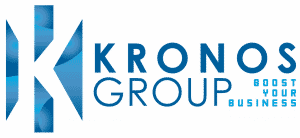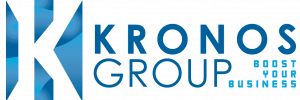How can project management training improve the accountability of project management?

Summary
Maintaining a high level of accountability across your business is a necessity to ensure your business operations are conducted smoothly without the need for constant interference and oversight.
This extends to the project management function, and project management training is one of the most effective ways of establishing and maintaining accountability in project management.
The contributions of project management training to improve accountability include defining roles and responsibilities, setting informed goals, encouraging team collaboration, tracking milestones, and monitoring performance.
With a reliable training provider that has in-depth knowledge of the project management landscape, you can improve the accountability of project management and significantly improve its effectiveness.
Accountability is an important aspect of any business operation and it is no different in the realm of project management. Project management training has the potential to improve accountability within project teams significantly.
Businesses globally are still contending with the post-pandemic impacts on the global economy, supply chains, and general business operations. In such an environment, one option businesses have to manage the conditions they face is establishing a streamlined project management function.
Businesses that undervalue project management have been seen to record 50% of their projects failing, highlighting the need for an improved project management function.
An effective project management function reduces the risk of failure, helps projects align with strategic business objectives, ensures a high level of quality, eliminates wasteful activities, and promotes a culture of learning and growth.
As more businesses recognise what well-defined project management offers, it is taking a more pronounced role in business operations. However, this has also led project managers to formulate strategies that can meet expected requirements.
Accountability in project management
Everyone knows and understands the value of accountability, particularly in a business context. This extends to project management, where the ownership of outcomes is very much an important part of the overall function.
An accountable project management team can execute multiple projects simultaneously with precision within timeliness to effectively achieve the objectives outlined in the project. Therefore, espousing the value of accountability in your project management team and culture is a critical component of success for the overall project management function.
An effective way of establishing and improving accountability within your project team is training.
Here is how training contributes to the improvement of accountability.
Project management training to improve accountability
While project management training and project management consulting can contribute significantly to the improvement of accountability within your organisation’s project team, a well-defined process must be followed to ensure the highest level of output.
To this end, you can consider enlisting the services of a professional training provider with expertise in project management to train your project team.
When employing a training provider, the first step is to conduct a needs assessment to identify areas for improvement. Training providers may offer this service themselves. Once identified, a customised training programme will be developed by the training provider that will help you reach your stated objectives.
Now that you are aware of how to choose a training provider to train your project team, here is how it will elevate their accountability.
Defining roles and objectives
Training provides insight into the value of clearly defining roles, responsibilities, and objectives for each project. This allows teams to create transparent project management processes where everyone is aware of their part in the project and how it contributes to the overall goal.
Setting informed goals
Training offers the skills and knowledge needed to gather and evaluate information that can be used to set data-driven and achievable goals that fit the expectations of the project, in the context of both budget and timelines. This helps team members be aware of the role they are playing in the project.
Encouraging team collaboration
Training creates a more connected and collaborative team that treats accountability as a collective effort, creating an environment where team members offer support, share knowledge, and work towards the common objectives set by the project. This improves overall accountability of the team.
Tracking milestones
Training provides effective strategies for continuously tracking milestones and ensuring project success throughout its lifespan. Tracking milestones throughout the project allows the team to identify potential bottlenecks and their impact on the timeline and implement corrective actions.
Monitoring performance
Training offers strategies for monitoring performance and fostering a culture of continuous improvement. This helps teams highlight their successes as well as challenges and areas for improvement, helping them establish a higher level of accountability and maintain it in the long term.
Improve the accountability of project management with a customised project management training programme
Accountability is a critical component of an effective project management function, helping you consistently reach the objectives of your projects.
Improving this aspect of the process is a necessity, and project management training conducted by experts has the potential to help you reach new heights in project management.




